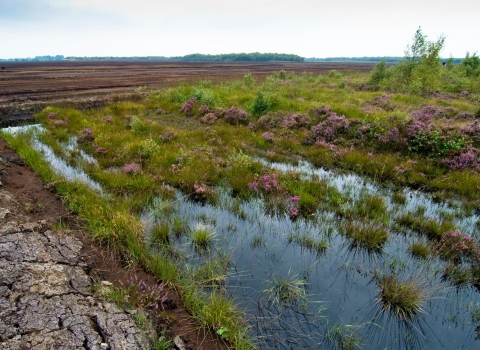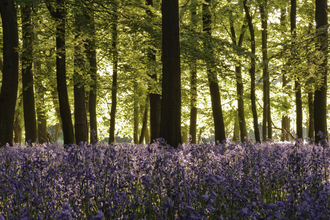Aviation funding for our peatlands
A new stream of funding
The Lancashire Wildlife Trust's Little Woolden Moss nature reserve has been chosen as one of the pilot areas for a new stream of funding from the aviation industry, which forms part of a wider sustainability strategy.
The funding comes through the Carbon Offsetting and Reduction Scheme for International Aviation (CORSIA), designed to complement the basket of mitigation measures the air transport community is already pursuing to reduce CO2 emissions from international aviation.
Funding is from Defra and Heathrow Airport, which has ambitions to become carbon neutral by 2020.
Why have we accepted this funding?
One of the main objectives of The Wildlife Trust movement is to engage and inspire people about the natural world. Lancashire Wildlife Trust believes this objective should extend to the private sector.
The funding from Heathrow Airport through the CORSIA Agreement will help us restore globally important habitats. It will communicate not only with Heathrow as an organisation, but with its customers, that the carbon emissions from the aviation industry cannot go unnoticed or without action to rectify some of the damage caused.
Peat extraction has degraded others beyond repair and we need to act now to save what remains of these sites, before they are lost forever. Once a peatland has been degraded beyond a certain point, it cannot be restored. If this project didn’t go ahead we would be at risk of losing this precious piece of the jigsaw forever.
How will we use this funding?
This project is part of wider work by the Lancashire Wildlife Trust to save and restore our precious peatland sites. Once the site has been re-wet, carpets of sphagnum moss and cottongrass will be introduced. This will encourage more wildlife to move back in, and to thrive. Just some of the benefits of this project include;
- Restoring globally important habitats.
- Re-introducing species such as the Manchester argus butterfly (the large heath), which is currently extinct in this area.
- Creating a wider network of habitats where wildlife can thrive.
- Maintaining our natural carbon storage.
This will also ensure that key species such as brown hare, common darter dragonfly and black darter dragonfly can thrive, alongside merlin, short eared owl, breeding skylark and the rare bog bush cricket.
Our UK peatlands are a globally important habitat which is currently under threat. We must do all we can to protect and restore these wonderful landscapes.


